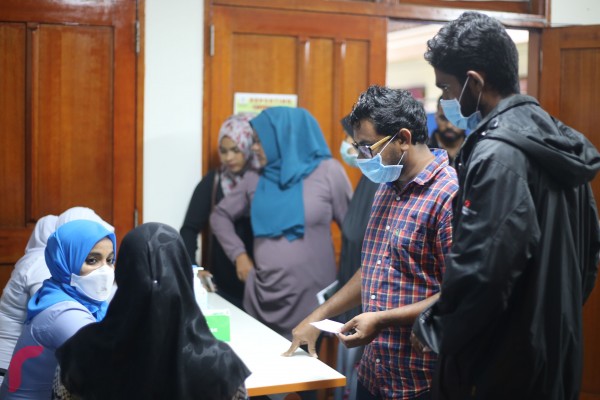Doctors have delivered a pregnant H1N1 patient’s five-month-old fetus after her condition deteriorated.
The Indira Gandhi Memorial Hospital (IGMH) has confirmed the emergency caesarian section, adding that doctors were forced to deliver the fetus at around midnight on Tuesday.
The patient remains to breathe with the aid of a ventilator and is being treated at the hospital’s intensive care unit.
IGMH’s officials added that the status and health of the infant will only be clear after tests.
Dr. Abdulla Niyaf, a member of the taskforce created to tackle this recent outbreak, said that there were three patients who were in critical condition, and that doctors are exercising utmost diligence in treating them.
The Health Ministry on Monday announced an H1N1 outbreak and placed the national alert for influenza at phase three, after 51 patients had tested positive for the strain.
In an urgent notice released during the first few hours of Monday, the Health Protection Agency (HPA) – charged under the ministry to function as the administrative custodian of public health – declared an increase in respiratory infections and said it was working with health facilities and other relevant authorities to control spreading.
The HPA’s statement expressly made it a point to deter public anxiety over reported increase in H1N1 cases, stressing that it was not ‘similar to the 2009 swine flu pandemic’.
Further, while the agency had first announced the number of positive cases to be at 27, this figure had increased by almost half by the end of the day.
The Ministry further revealed that vaccine reserves were too scarce to be administered to the entire population and discussions to acquire more were underway – but due to the current capacity, they would be limited to groups susceptible to respiratory ailments, like pregnant women, children, the elderly, and those with existing respiratory conditions.
Academic institutions, including grade schools, colleges, and universities, have been closed to deter spreading as well.





